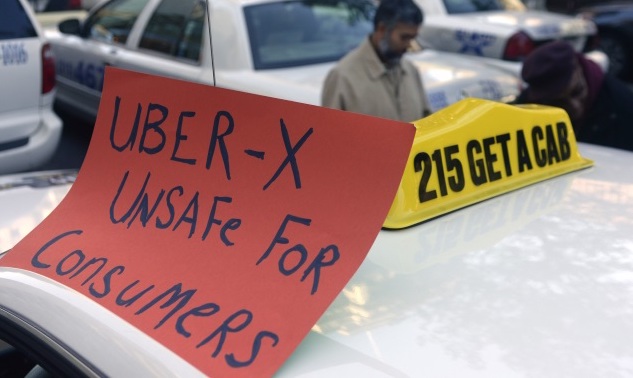At the heart of the new “ridesharing” economy are what business leaders call Transportation Network Companies or TNCs, better known by most of us as Uber or Lyft. The speed and convenience of these new tech companies has swept the nation. Riders, in turn, have become repeat customers noticing that these new platforms are also saving them a few dollars per ride compared to other transportation services. The cost cutting has even prompted some cities to look at subsidizing TNCs with tax payer dollars as a cheaper alternative to public transit.
What’s concerning is that corporate app backers neglect to highlight an important fact to riders. The reason they can offer such competitive rates is because they are actively exploiting loopholes that allow them to evade traditional driver training and screening requirements that ensure a rider’s safety.
The Public Transit Safety Standard
When it comes to Public Transit, whether by city bus, streetcar, commuter rail, or intercity rail or bus, we all have come to rely upon the faith and trust of the local or state government to provide oversight and safety. That practice of good public policy ensures riders are able to travel with a high level of safety, in vehicles operated by employees who have been properly screened, trained, and educated in providing a high quality of service.
Protecting both drivers and riders, the Federal Transit Administration functions off of public input to establish regulations on Drug and Alcohol Testing, hours that a driver can operate a vehicle, physical examination thresholds, and background checks, all kept on file and open to public record request and scrutiny.
The Florida Department of Transportation Public Transit division also continues to provide updates to its Safety and Security requirements for Public Transit Agencies who receive public funding, further ensuring that the service will be delivered in a fair, safe, and non-discriminatory manner.
The Ridesharing Safety Standard
Uber and Lyft currently have very weak standards and requirements to become a driver. Other than ensuring drivers have a driver’s license, a car not older than a certain number of years and a smartphone, their company-owned background checks system and driver safety tests are known to be nowhere near as thorough as our local transit systems. Adding insult to injury, what ridesharing companies require of their drivers is considered proprietary and is kept from public records.
In response to the explosion of TNCs, many states are passing increased regulations. However, when it comes to the safety and trust of the same level required of public transit operators, states are allowing Uber and Lyft to govern themselves with little or no transparency. Regulation many times increases cost, but the increase cost includes increased protection and safety. Did we forget that cars today became more expensive due to airbags, seatbelts, child locks and restraints?
Florida’s New Standards
HB 221 and SB 340 have been filed in the Florida Legislature and the House bill is moving through committees. This is an attempt by the Legislature to address concerns that have been raised as Local governments have begun to regulate TNCs and their operation in our communities.
We must urge the Legislature that the safety and security of the riding public is more important than any savings to the cost of delivering public service. We urge them to incorporate language that provides at a minimum:
“As a condition of entering into a contractual relationship with any “public transit provider” as defined in 341.031, paratransit provider, or contractor to a public transit or paratransit provider for the provision of transportation service, a TNC shall be subject to the same local, state, and federal safety and training requirements mandated by statute, regulation, or guidance as such public transit provider, paratransit provider, or contractor.”
Click here to find your local Florida House and Florida Senate members. Call them today and remind them that we should always stand by our priority to put the public and transit riders’ safety first.
Dwight Mattingly is President/Business Agent of Amalgamated Transit Union(ATU) Local 1577 in West Palm Beach; Vice Chairman, ATU Florida Legislative Conference Board. A Public Transit employee and advocate.

